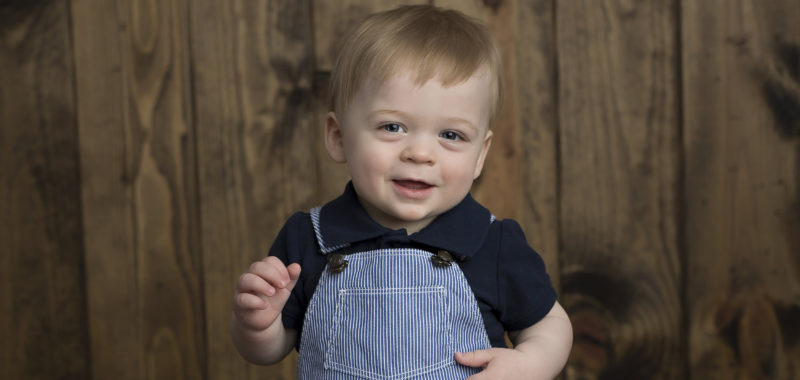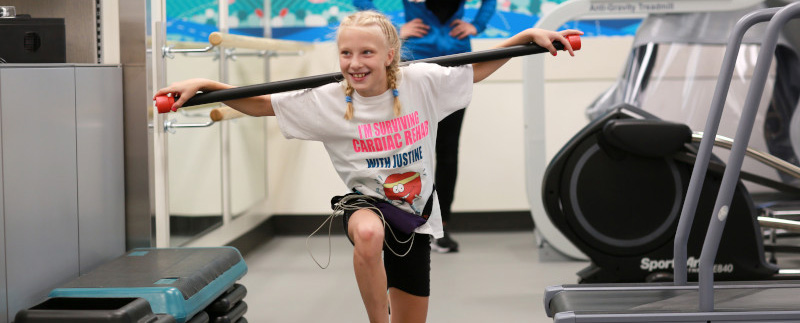Our journey with Alexander began when my wife, Erin, was 28 weeks into pregnancy. After three consecutive mornings of prenatal imaging, we learned that our son’s heart was in a problem zone.
The first appointment was a routine ultrasound at the obstetrician’s office. The next day, we visited a neonatologist for a “level two” ultrasound. By the third morning, Friday, the baby was undergoing a fetal echocardiogram at Cincinnati Children’s.
During the echo, I saw my son’s heart beating for the first time on a large television screen. Even without a medical background, I could see for myself there was a problem. The left two chambers of Alexander’s heart resembled a deflated balloon and seemed to sway without purpose. When the sonographer was done, a cardiologist entered the room and diagnosed a complex and life-threatening congenital heart defect involving obstruction of the aorta and small left heart structures.
You can’t control what happens to you, but you can control how you respond. On the morning of the diagnosis, my wife and I were still newlyweds — three weeks away from our first wedding anniversary. We knew a challenging pregnancy in our new life together would put us to the test, but we made a deliberate effort to not let it get the best of us. I credit my wife for this approach, and it’s arguably the number one takeaway from the “Waiting for Alexander” video.
Fortunately, our son came to full term and he was born at a “level three” NICU over Memorial Day weekend. Even better, a subsequent head-to-toe analysis confirmed that he was 100% healthy aside from his heart. The exhilaration of childbirth, however, quickly evolved into a reality that contained many question marks.
Immediately after birth, Alexander was transferred by a special ambulance from the NICU at a local hospital to the cardiac intensive care unit (CICU) at Cincinnati Children’s. There, he was kept alive for eight days with an I.V. of a drug that allowed blood to flow through his body.
Every conversation about Alexander centered on whether the left two chambers of his heart could be saved. While the aorta required surgery, the number one goal was for our son to leave the hospital with all four chambers of his heart intact.
Doctors and specialists provided us with ongoing, comprehensive feedback. As a parent, there was a lot to worry about. My wife and I tried to focus by prioritizing “big” issues while working our way towards the “small” ones. This was easier said than done, of course.
Primarily, we worried about whether the left side of Alexander’s heart could be salvaged and revived. We also worried about his looming surgery and going on a heart-lung bypass machine. As much as possible, all other concerns went on our mental back burner.
On the morning of June 5th, Alexander underwent open-heart surgery for over seven hours. At that time, his heart and lungs were put on a machine. Meanwhile, the narrow portion of his aorta was cut out and the two remaining ends were joined together.
During life’s big moments, I sometimes find myself not caught up in how I’m supposed to feel. But not in this case. Watching my newborn son put up a fight both filled me with pride and broke my heart. I was in awe of my son’s strength and how he seemed to have more conviction in his tiny body than I see in myself.
Naturally, people often speak in terms of religious miracles or medical miracles following life-saving efforts. A third factor worth recognizing is the miraculous resiliency of babies, and in particular the amazing regenerative growth potential of the infant heart. To parents in similar circumstances — whether it be the NICU or the CICU — I would offer this as reassurance.
Cincinnati Children’s tagline “change the outcome” is an expression that rings true for our family. Ever since open-heart surgery, Alexander has been like a new baby. Having made it this far without problems, we are hopeful that he won’t need to undergo heart surgery again.
Throughout the last year, Alexander has developed in ways that seemed incomprehensible during his first two weeks of life. Alexander loves to laugh and make others around him laugh. His favorite past time is to lure friends, family and even strangers into endless rounds of peek-a-boo. Aside from the scar across his chest, he is indistinguishable from his peers.
Recently, we received even more good news about his heart when an angioplasty scheduled for age one was deemed unnecessary. At that same appointment, he was taken off all medications effective immediately.
Overall, we have had this tremendous outcome and its significance is not lost on us. We know our son has benefited tremendously from others, and we continue looking for impactful ways to help the cause.





